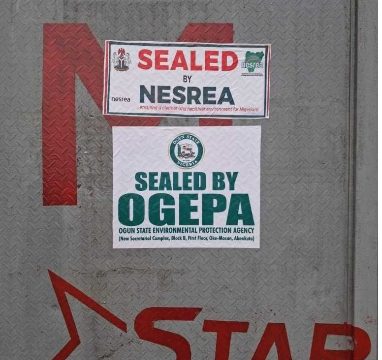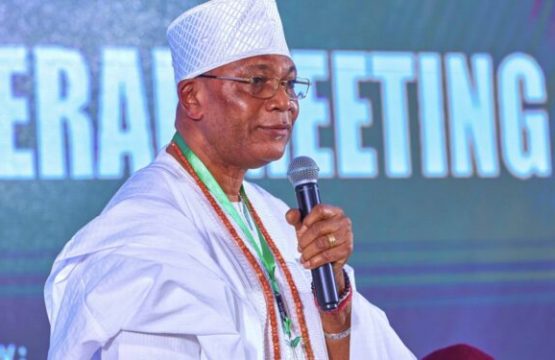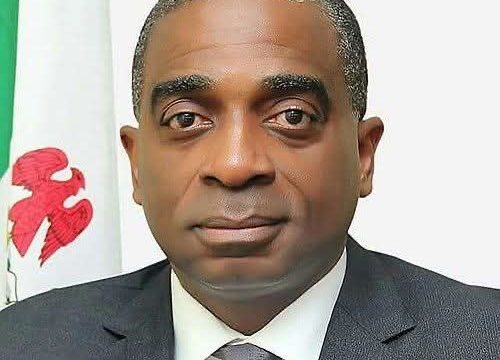By Franklin Ocheneyi
AT Last, the long-awaited products from Nigeria’s first privately owned petroleum refinery – Dangote Petroleum Refinery, have hit the local markets.
Indeed, this was great news to the country, and by extension, the African continent.
This is especially important in this era of the African single market economy – African Continental Free Trade Area Agreement (AfCFTA).
After the official commission of the refinery on May 18, 2023, by former President Muhammadu Buhari, the first batch of petroleum products was expected to hit the market by the end of July / August 2023, but the delivery was held back due to some challenges.
The delays, notwithstanding, Dangote’s Group Executive, Devakumar Edwin, last week, confirmed the shipping of diesel and jet fuel from the refinery into the local markets, and the petrol is soon to follow.
” We have substantial quantities. Products are being evacuated both by sea and the road. Ships are lining up one after another to load diesel and aviation jet fuel.
“Ships load a minimum of 26 million litres, though we try to push for 37 million litres vessels, for ease of operations,” said Devakumar.

▪︎In Picture: The Dangote Petroleum Refinery at Ibeju Lekki, Lagos.
BACKGROUND
Built for $20 billion by Aliko Dangote,
the 650,000-capacity mega refinery is seen as a major step in the country’s quest for energy independence as the company will save Nigeria the much-needed foreign exchange (FX) that would have been expended on importing fuels, as well as earning the country some hard currency from the supply of products to foreign markets.
It’s estimated that Nigeria spends at least 50 per cent of its $30 billion import expenditure on fuels.
This is expected to reduce considerably, following the coming onstream of the Dangote Oil Refinery.
Crude Oil Producer, Exporter Turned Importer
From the 1960s up to 2010, Nigeria refined and exported millions of barrels per day of crude oil and petroleum products to the United States of America and other countries.
However, the country was forced into continuous fuel imports due to mismanagement and lack of maintenance of the four government-owned refineries having a combined capacity of 445,000 barrels per stream day (bpsd).
They are – Warri Refinery and Petrochemical Company (WRPC); Old Port Harcourt Refinery; New Port Harcourt Refinery and Petrochemical Company (PHRC); and Kaduna Refinery and Petrochemical Company (KRPC). Efforts are being made to get them working again to complement the outputs the Dangote’s, and the other upcoming ones by private individuals.
Since then, the country has relied on imported petroleum products, with the government subsidising the cost of virtually all the products until recent years when automotive gas oil (also known as diesel) and others were liberalised, and the fuel subsidy was removed by the current President Bola Tinubu.
Data released recently by the National Bureau of Statistics have shown that although Nigeria has an estimated 37.1 billion barrels of proved crude oil reserves, in 2022 alone, the country spent N10.1 trillion, or $23 billion, on the importation of premium motor spirit (PMS), and other petroleum products – diesel, Kerosene, etc.
Changing The Hands of Clock
However, with the coming upstream of the Dangote Petroleum Refinery, the narrative is being changed.
Aliko Dangote, the President and CEO of Dangote Group during the official launch of the refinery on May 18, 2023, told the local, continental and global audience that the project is just the beginning of a great journey., a milestone in a new and exciting trajectory for the downstream sector of Nigeria’s Oil and Gas Industry.
” The refinery will help Nigeria transition from being the largest importer of petroleum products to a net exporter.
“It is our firm commitment that we will replicate in this sector (Oil and gas), what we have achieved in the cement and fertilizer markets, where Nigeria transited from being the largest importer of these products to a net exporter,” he said.
He stated that given the 650,000 barrel per day processing capacity, the refinery is more than able to meet all of Nigeria’s domestic fuel consumption, which is about 450,000 barrels per day. This leaves the excess production of 200,000 bpd available for export.
He said that the group’s huge investment of billions of dollars in the oil and gas industry was prompted by the desire to support and contribute their quota to the Federal Government’s sustained effort to transform the economy and properly position the country as the leading nation in Africa, and a respected member among emerging economies in the world.
” Our first goal is to ramp up production of the various products to ensure that we can fully satisfy our nation’s demand for high-quality products to enable us to eliminate the tragedy of import dependency and stop, once and for all, and the dumping in our market of toxic sub-standard petroleum products,” he said.
He added that beyond the local market, the group intend to ensure that the plants are run at the highest capacity utilization and highest efficiency to enable us to export competitively to other markets, especially in the ECOWAS and the wider Africa region in which 53 countries out of 55 are dependent on imports to meet their petroleum products demand.
” The Dangote Refinery promises to bring to a pleasant end, the nightmare of long queues at petrol filling stations across the country and the disruption of social and economic activities that come with it.”
Private Sector Lauds Dangote
Private sector operators in the economy, like the Manufacturers Association of Nigeria (MAN), Lagos Chamber of Commerce and Industry (LCCI), and the Nigerian Employers Consultative Association (NECA), praised the billionaire industrialist for the feat.
Segun Ajayi-Kadir, the Director-General of MAN, said: ” For all the determination and trail-blazing zeal to have brought this dream into reality, MAN congratulates Aliko Dangote, on the completion and the official commission of this pride-of-Africa birthed-in-Nigeria project.”
He said that the coming onboard of the Dangote Refinery promises to bring to a pleasant end, the nightmare of long queues at petrol filling stations across the country and the disruption of social and economic activities that come with it.
Similarly, Dr Chinyere Almona, the Director-General of LCCI, noted, “LCCI views the Refinery’s impact on the Nigerian economy as significant. It will save and generate foreign exchange.
“The Refinery will create jobs, positively affect the value of the Naira, broaden prosperity for the downstream sector, and provide growth opportunities for businesses. It will also stimulate economic growth by impacting the country’s balance of payments.
“In addition, the Chamber expects the Refinery to fuel further growth and development across its value chain, including cosmetics, plastics, textiles, etc.
“We also see room for the development of added value in agribusiness, including the Sugar Backward Integration projects that plan to create a strong localized supply in the sugar industry, benefiting local suppliers across the sugar value chain,” she said.
Wale-Smatt Oyerinde, the Director-General of NECA, added that with the petroleum Refinery and the Petrochemical plant as well as the Fertilizer plant housed in Nigeria, it invariably implies that there would be no more importation of petroleum products; rather, there will be export of finished products, thus, putting an end to long queues and scarcity of petroleum products.
A significant plus of this feat would be the attraction of foreign capital investments that the country desperately needs.”
So far, so good, in the words of the Chief Executive Officer of the Nigerian National Petroleum Company Limited (NNPCL), Mele Kyari, with the expected completion of the ongoing maintenance of the nation’s four refineries and the just completed Dangote Refinery, Nigeria will no longer import refined petroleum products from mid-2024.
” With the total production from the national refineries, which are currently being refurbished, and the products from Dangote Refinery, in which the Federal Government has a 20 per cent stake, the country should be able to meet domestic needs without any need for import,” he said.
▪︎industrialtimesngr@gmail.com











